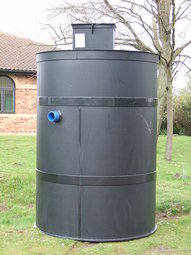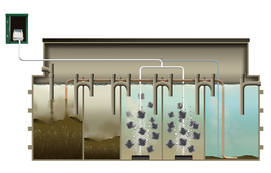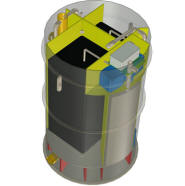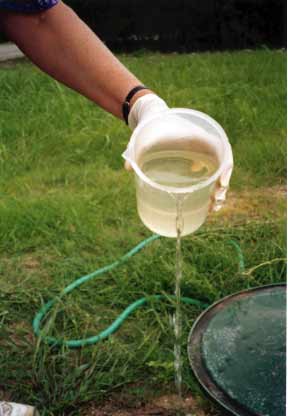Sewage Treatment Plants
Sewage Plants Explained
What is a sewage treatment plant?A sewage treatment plant is the modern way to treat wastewater and sewage. Sewage treatment plants produce a liquid that is non-polluting and which resembles clear water. They can discharge directly to a ditch, stream or river without harming fish and other wildlife. They achieve this by utilising millions of friendly aerobic (oxygen breathing) bacteria which digest the organic pollutants in the sewage and wastewater. |  | More Facts In the old days, the usual method of dealing with household sewage in rural areas was to install a septic tank (often called a 'cesspit') and soakaway. The problem is that we use far more water now than we used to and the septic tank effluent does not always soak away fast enough, especially in heavy soils. The system then backs-up and fails. Septic tank effluent is also very polluting and can affect groundwater used in public drinking water supplies, contaminating it with bacteria and viruses. The Environment Agency prefer the use of sewage treatment plants (with a servicing contract) over septic tanks nowadays. |
Which sewage treatment plant is the best?There is no such thing as the 'Best' sewage plant. It depends how it is going to be used. Some plants do not work well if they are very underloaded, some do. Some plants die if they are left for any length of time without use, others continue to survive for weeks. There are many different types of sewage treatment plants and many manufacturers are economical with the truth about their plants' capabilities. There are 6 basic important things to consider when buying a sewage treatment plant.
You have some work to do as well. See steps to take for a successful sewage installation |
| What To Look For Look around the internet for details of the important points of the plant to consider, listed opposite. Many sewage treatment plant manufacturers only list the good aspects of their systems and leave out the bits that are not so good. Don't be satisfied with this - if the tank warranty period is not stated, ring them and find out and don't pay extra for any warranty up to 5 years. Likewise, if it is not clear if the tank is made in 2 halves, or the electricity consumption is not obvious, ring and ask the questions. It does not matter if you have the best sewage treatment process in the world - if the tank splits, cracks or if the seals perish, then the system is ruined. This is the type of effluent you want - clean, odourless and cheap to produce!
|



